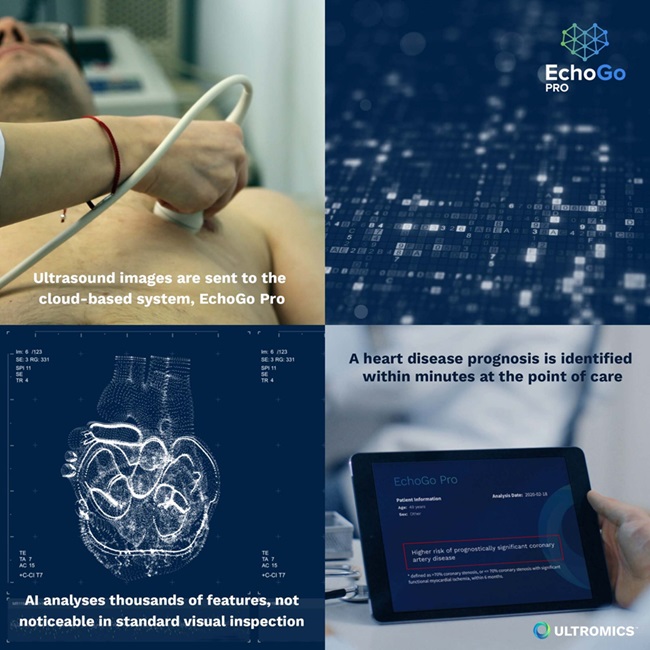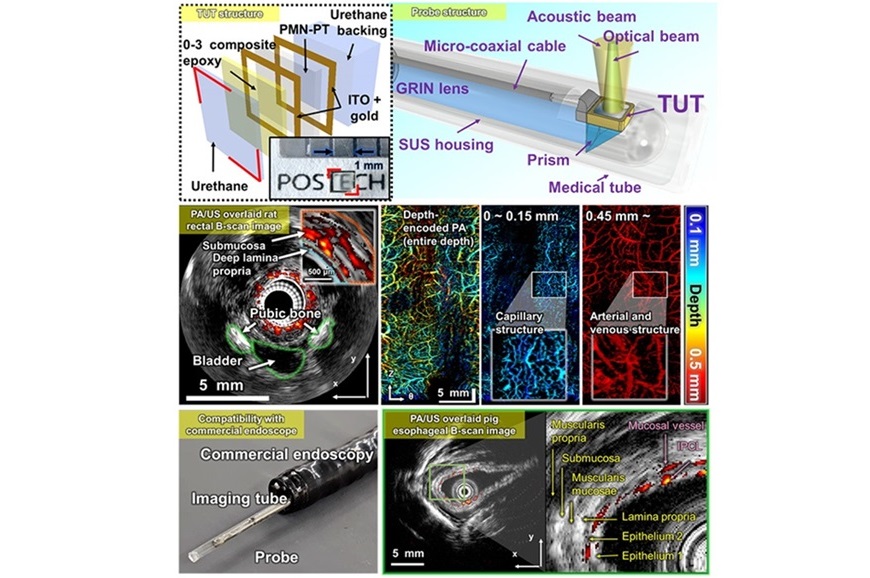AI May Benefit Decision-Making in Less Experienced Clinicians Assessing Heart Ultrasounds
Posted on 09 Sep 2024
Coronary artery disease (CAD) is a leading cause of death globally, causing over 9 million deaths worldwide and 63,000 annually in the UK alone. Stress echocardiography (SE), which is an ultrasound of the heart taken at rest and during stress, is crucial for assessing the risk of heart attacks and death in patients with known or suspected CAD. SE is not only among the most frequently used diagnostic tests for CAD but is also the primary imaging method available across the UK for this diagnosis. However, its accuracy ranges significantly, from 60% to 94%, influenced by the clinician's expertise and the quality of the images. The integration of artificial intelligence (AI) into healthcare presents significant potential to aid clinicians in diagnosing more swiftly and accurately, thus initiating treatments earlier. Now, a large randomized trial found no substantial evidence to suggest that AI assistance in clinical decision-making for heart ultrasound assessments improves detection rates compared to traditional practices for identifying patients with suspected heart disease who might benefit from invasive treatments. Nonetheless, the study highlighted that AI could enhance decision-making capabilities for less experienced clinicians and showed promise in particularly complex clinical sub-groups.
Developed by researchers at the University of Oxford (Oxford, UK) EchoGo Pro automates the interpretation of SE images by integrating novel image features with AI technology. This software's effectiveness was tested through the PROTEUS randomized controlled trial, which involved patients aged 18 and older referred for SE at 20 UK hospitals from November 2021 to June 2023 to investigate suspected CAD. The study involved 2,341 patients (average age 64 years; 45% female; 20% with pre-existing heart disease), who were randomly assigned to either standard clinical decision-making or AI-enhanced decision-making where clinicians used an AI-generated image analysis report (EchoGo Pro) during their image assessments to evaluate the likelihood of severe CAD. The main focus of the study was to compare the effectiveness of standard versus AI-augmented decision-making in directing patients towards invasive coronary angiograms and monitoring acute coronary events within a six-month period. By December 2023, 2,213 participants (94.5%) had completed the six-month follow-up.

Overall, 85 patients were referred for angiography post-SE. Among those not referred, 41 suffered acute coronary syndromes (nonfatal heart attacks) or cardiac deaths within six months, indicating potential misjudgments in referral decisions. The analysis revealed that AI-assisted decision-making did not show non-inferiority compared to traditional clinical decision-making in appropriately directing patients for coronary angiography. Among those referred, 27 out of 36 in the control group and 34 out of 49 in the AI group were deemed correct referrals. Regarding patients who suffered adverse events despite not being referred for angiography, there were 22 in the control group and 19 in the AI group, though the differences were not statistically significant. However, additional analyses indicated that AI could improve decision-making among less experienced clinicians and in complex cases where image interpretation is challenging.
“It is well reported that clinician performance in interpreting stress echocardiograms ranges widely according to the experience level of the operator,” said lead author Dr. Ross Upton from the University of Oxford. “The results of this trial suggest that AI has the potential to bring all operators, regardless of experience, up to the same level of accuracy. While the PROTEUS trial did not demonstrate meaningful differences in all-comers, the AI diagnostic may also benefit specific subgroups of patients in whom decision making is known to be more complex.”
Related Links:
University of Oxford














